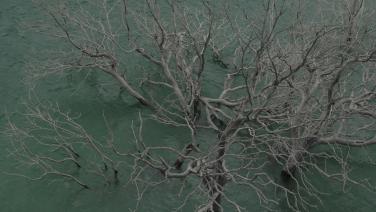This programme, based on a series of monthly meetings, aims to open up a debate on these issues. Where does the list of the different layers that contemporary ecology should take into account begin and end?

The vocabulary used to address each historical period is a reflection of the problems and challenges that society faces at that time. Thus, the ways of speaking and naming things also become part of the problems they address. With all its chiaroscuros, this naming process is today shaped by ecology, affecting both our dictionaries and our ways of life.
At the beginning of the 1990s, the philosopher Félix Guattari analysed the ecological question by differentiating three interrelated strata: psychic ecology, the ecology of social relations and environmental ecology. Since then, the impact of ecology has only multiplied. The idea that society is permanently connected to its natural environment – in an ecosystem – has led to the use of the term spreading in all directions: to sensations, perceptions, cognition, desire, the field of care, power relations, values and even the world of information.
This programme, based on a series of monthly meetings, aims to open up a debate on these issues. Where does the list of the different layers that contemporary ecology should take into account begin and end? How can we approach the core of these layers? How and where do they touch? Without each individual abandoning their own activity, how can we promote the concern and responsibility for a common space? Tabakalera believes that it is essential to try to answer these questions collectively, producing critical declarations in relation to artistic practice, natural sciences and other areas of knowledge and public intervention.
